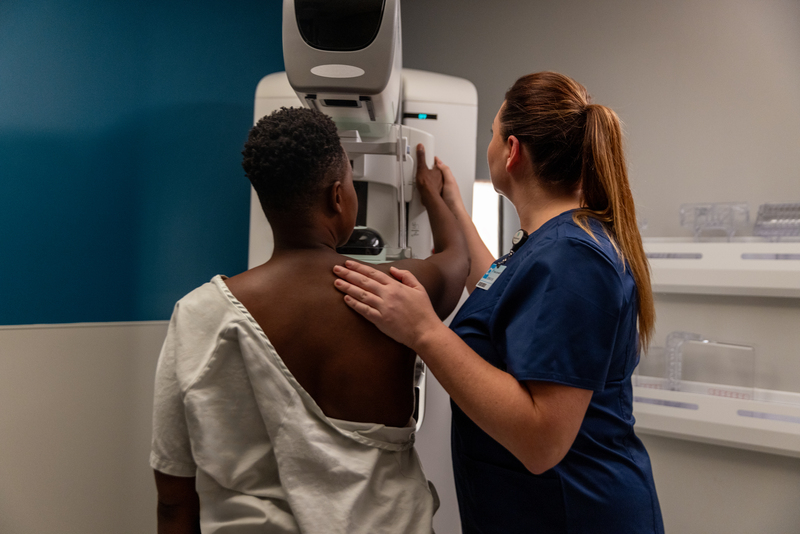
Breast cancer care tailored to you
Understanding your personal risk is the first step in staying ahead of breast cancer. Whether you're looking for answers about screening, prevention, or genetics, we’re here to help you make informed decisions.
Know your risk. Take control.
Understanding your personal breast cancer risk can help you take meaningful steps toward prevention and early detection.
What increases your risk?
Certain factors may raise your chances of developing breast cancer, including:
- A personal or family history of breast, ovarian, pancreatic, or prostate cancer
- Dense breast tissue
- Previous chest radiation
- Menstrual and reproductive history
- Ashkenazi Jewish heritage
- Being overweight or physically inactive
Having risk factors does not mean you will develop breast cancer. You and your clinician can use this knowledge to develop a plan to lower your risk and create a screening schedule that can detect breast cancer at its earliest, most treatable stage.
Genetics and risk assessment
At least 10% of cancer cases are thought to be passed down from one generation of a family to the next. You may be more likely to have a breast cancer-related gene if you have a strong family history of breast, ovarian, pancreatic or prostate cancer, or have Ashkenazi Jewish ancestry.
While most people with breast cancer do not have an inherited gene mutation, learning whether you have inherited a cancer-related gene can help your clinician create an early detection or prevention plan that's right for you.
Main Line Health's Genetics and Risk Assessment Program is offered at multiple locations in the region and is available to anyone concerned about cancer risk due to a personal or family history.
Screening
Routine mammograms for people at average risk should begin around age 40. All of our mammography centers have the latest 3D imaging technology, which is particularly effective for women between the ages of 40 and 50 who have dense breasts and/or those with a personal history of breast cancer. Our 3D mammography sites also are equipped with SmartCurve™ technology, providing a more comfortable mammography experience.
Advanced screening options such as breast MRI and ultrasound also are available.
While being aware of risk factors for breast cancer can help you make healthy lifestyle choices, a mammogram remains the best way to detect breast cancer in the early stages. You do not need a prescription to schedule your screening mammogram.
Schedule your screening mammogram at one of our convenient outpatient imaging locations.
Prefer to speak with someone? Call 484.580.1800 to schedule or ask questions.
